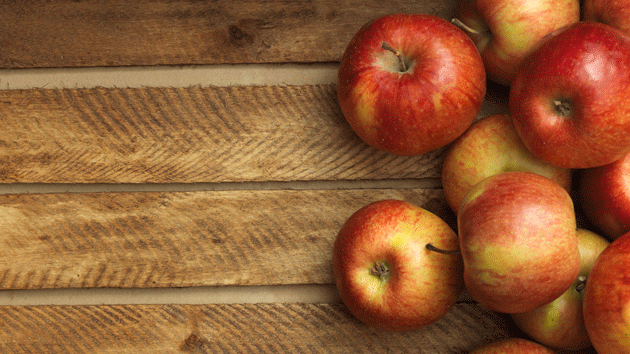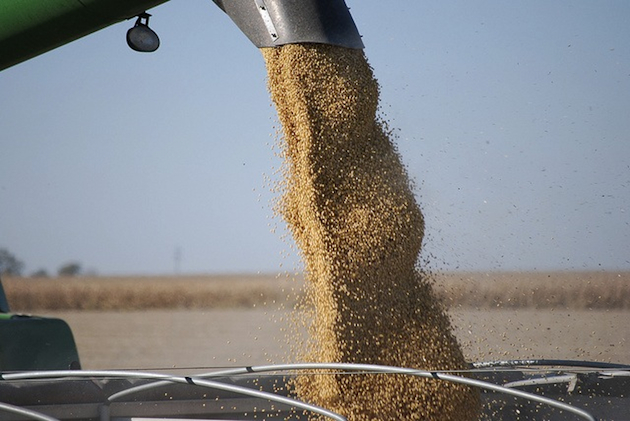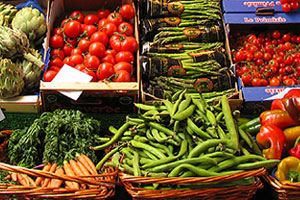
<a href="http://www.shutterstock.com/pic-125443724/stock-photo-red-apples-in-wooden-box-copyspace.html?src=SLFsfb_z22UZTI0TeVFt4w-1-13" target="_blank">Tischenko Irina</a>/Shutterstock
Back in 2008, European Food Safety Authority began pressing the chemical industry to provide safety information on a substance called diphenylamine, or DPA. Widely applied to apples after harvest, DPA prevents “storage scald”—brown spots that “becomes a concern when fruit is stored for several months,” according to Washington State University, reporting from the heartland of industrial-scale apple production.
DPA isn’t believed to be harmful on its own. But it has the potential to break down into a family of carcinogens called nitrosamines—not something you want to find on your daily apple. And that’s why European food safety regulators wanted more information on it. The industry came back with just “one study that detected three unknown chemicals on DPA-treated apples, but it could not determine if any of these chemicals, apparently formed when the DPA broke down, were nitrosamines,” Environmental Working Group shows in an important new report. (The EFSA was concerned that DPA could decay into nitrosamines under contact with nitrogen, a ubiquitous element, EWG notes.) Unsatisfied with the response, the EFSA banned use of DPA on apples in 2012. And in March, the agency then slashed the tolerable level of DPA on imported apples to 0.1 parts per million, EWG reports.
What does that have to do with the US-grown apples now gleaming, spot-free, on supermarket shelves? According to EWG, in 2010, when the US Department of Agriculture last looked for DPA residues on US-grown apples, it found them on 80 percent of samples. Average reading: 0.42 ppm, or about four times the new European limit. In other words, the apple on your countertop would likely be deemed unsafe by European authorities.
So what’s our own Environmental Protection Agency’s take on DPA-coated apples? It green-lights residues of up to 10 ppm—100 times the new European norm—and hasn’t reconsidered its position on the chemical since 1998, EWG reports. Nor does it have plans to do so in the future. Here’s EWG:
Earlier this year three scientists in the U.S. EPA Office of Pesticides, which is tasked with pesticide safety reviews, told EWG they were unaware of the new European ban and import restrictions. They said the agency had no plans to reassess DPA safety in light of the European actions.
So do DPA-treated apples present real health risks? I don’t know—and neither, apparently, do food safety authorities on either side of the Atlantic. Until they learn more, Europe has decided that the public shouldn’t be gobbling up DPA along with their daily fruit. For Americans wanting the same level of protection, EWG suggests choosing organic apples when possible.
















